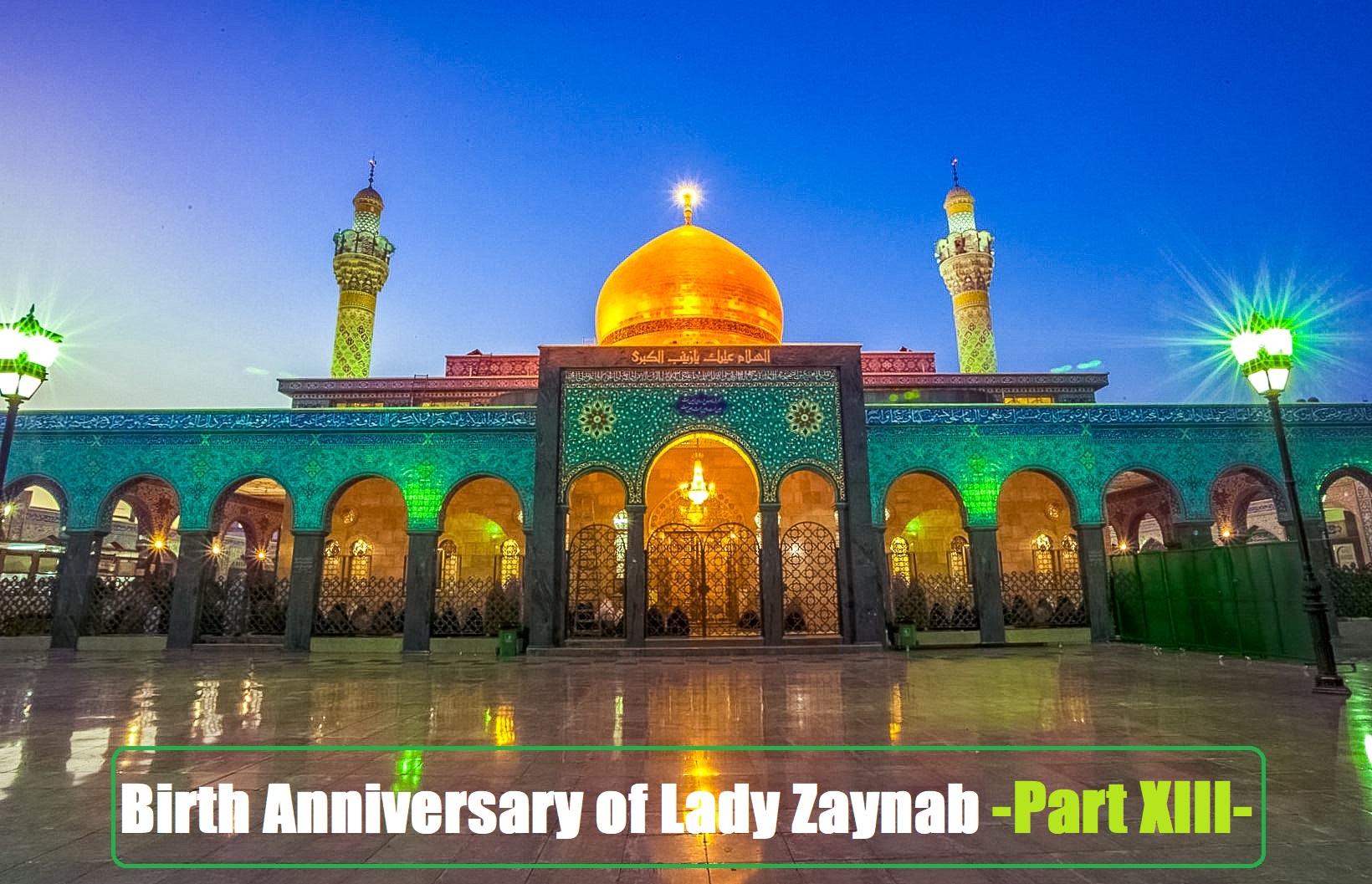Return to Madina
Yazid gave them the choice of remaining in Damascus or returning to Medina. When Zaynab (A.S.) decided to return to Medina he called Nu'man ibn Bashir, who had been a companion of the Holy Prophel [s.a.w.], and ordered him to make suitable arrangements for their journey. A contingent of horsemen, foot-soldiers and adequate provisions were made available. Gaily decorated litters with velvet seats were provided, but Zaynab (A.S.) ordered that these should be covered in black so that people would know the travelers were in mourning.
When the citizens of Damascus came to know that the members of the Holy Prophet's family were leaving, the women came to the house they were staying in for a last farewell. Many people accompanied the caravan for part of the journey and then returned to their homes with heavy hearts.
During the journey Nu'man ibn Bashir showed the travelers every consideration and respect.
Whenever they stopped, the tents of the men were pitched a mile away from those of the women so that the women could move unhindered and unobserved by strangers. Gatherings of mourners were held wherever they stopped and many people came, listened and learned the truth. The travelers returned to Medina via Karbala. When they reached Karbala they found Jabir ibn Abdullah Ansari and some of the chiefs of Bani Hashim were already there for they had come to pay homage at the grave of Imam Husayn. It is related that the journeyers had brought the severed head of the chief of martyrs with them from Damascus and that in Karbala it was rejoined with his body by his son Imam Zayn ul-Abidin (A.S.). A great majlis was held before they resumed their journey.
When the time came to leave Karbala, Zaynab (A.S.) wanted to remain near her brother's grave till the day of her death. But Zayn ul-Abidin (A.S.) pleaded with her not to leave them and reluctantly she agreed to return to Medina.
Wherever the caravan stopped on its way to Medina a majlis-e-aza' was held. When the city was in sight Zaynab (A.S.) bade the women alight from their camels and pitch their tents. Black flags were raised. On learning of their arrival the people of Medina came out in droves, and once again Zaynab (A.S.) recounted to them the events at Karbala and the hardships of their subsequent captivity.
After some time Imam Zayn ul-Abidin (A.S.) asked the women to ready themselves for entering Medina. Then they entered the city on foot, with black flags raised aloft. Zaynab (A.S.) went straight to the grave of the Holy Prophet [s.a.w.] where she prayed and told him of the massacre of his beloved grandson.
Zaynab (A.S.) had returned altered, her hair white, and her back bent. Although upon her return she had been reunited with her husband, she did not live long after the tortuous trials she had to bear. The exact date and place of her death is not clear but it is probable that she died in the year 62 A.H. some six months after her return.
Epilogue
It was her destiny to proclaim to the world the sacrifices made by Imam Husayn and the other members of the family of the Holy Prophet [s.a.w.] for the cause of Islam. She exposed the evil deeds of Ibn Ziyad and Yazid with courage and fearlessness. Had it not been for her the sacrifice of Karbala might have faded into oblivion. She endured physical pain and mental torture with fortitude and was a source of strength to all around her. The sorrow and grief she expressed was an outpouring of her intense humanity. Never did she rebel against the destiny decreed by Allah. The strength of her submission was divine, yet her lamentation poignantly human.
The spirit of Zaynab (A.S.) will live forever. Her courage, forbearance, and submission will continue to inspire those who hear her story for all time to come.

